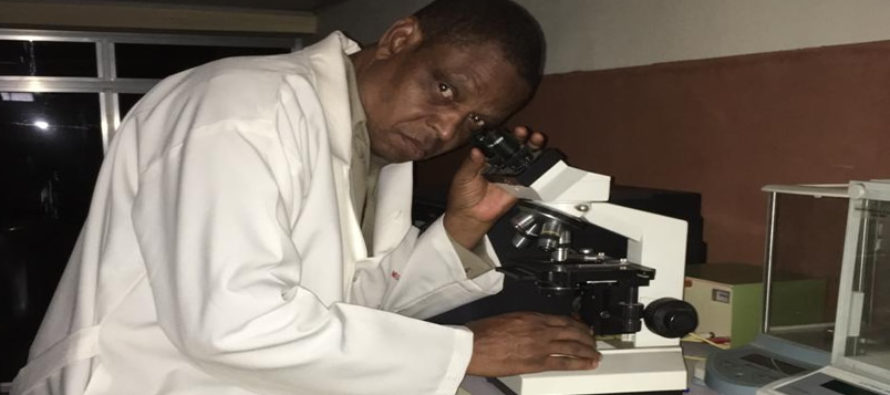
Nigerians on the alert as fear of yellow fever outbreak heightens
Nigerians on the alert as fear of yellow fever outbreak heightens
After the Saturday report by the Nigeria Centre for Disease Control (NCDC) on outbreak of yellow fever in Edo state, South-south Nigeria, health officers and residents across Nigeria have been put on a red alert to prevent possible spread to other parts of the Nigeria.
Residents have been urged to take vaccine against Yellow Fever as health officers move from school to school, church to church, mosque to mosques and other public places administering vaccine to residents.
Nigerians are always on the watch when it comes to disease control.
Faisal Shuaib, head of the National Primary Health Care Development Agency (NPHCDA), told reporters in Abuja that tests done at local laboratories had shown that samples tested positive for yellow fever in the southern state.
Shuaib said health authorities, including the NPHCDA, Nigeria Center for Disease Control (NCDC), World Health Organization (WHO), Edo State Epidemiology team, and other partners were working together to rapidly conduct a comprehensive investigation and respond appropriately to the situation.
The NCDC issued a red alert on the yellow fever outbreak in Edo last Saturday.
Yellow fever is an acute viral hemorrhagic disease transmitted by infected mosquitoes. The “yellow” in the name refers to jaundice that affects some patients.
“We will like to assure the general public that all the agencies involved are working swiftly to contain the spread and prevent further outbreaks,” Shuaib said.
Since September 2017, Nigeria has recorded suspected cases of yellow fever in all states in the country.
Being a yellow fever-endemic country, Nigeria has received considerable attention focus and support from WHO, UNICEF and other partners and donors following last year’s confirmed outbreaks in the country.
As of Nov. 11, 140 cases of yellow fever were being confirmed by a local laboratory in Nigeria, according to data by the NCDC.
A multi-agency yellow fever Emergency Operations Centre has been established at NCDC to coordinate the national response.
The symptoms of yellow fever include yellowness of the eyes, sudden fever, headache and body pain.
Last April, WHO launched the Elimination of Yellow Fever Epidemics (EYE) strategy in Nigeria, as part of a global response to guarantee the protection and containment of yellow fever outbreaks by 2026.
On Nov. 22, the government flagged off a large yellow fever vaccination campaign, targeting 26 million children and adults in Niger, Plateau, Borno, Sokoto, Kebbi and the nation’s capital Abuja. The exercise will last till Dec. 1.
Dr Chikwe Ihekweazu, Chief Executive Officer, NCDC, in Abuja in a statement, said that following the report of an outbreak of fever of unknown origin in four Local Government Areas, public health team commenced investigation on Nov. 21 and nine cases tested positive for yellow fever.
He added that the Edo epidemiology team would be working with the NCDC and other relevant agencies to carry out detailed investigation and response to the already confirmed cases.
According to him, the NCDC has deployed a rapid response team to support the state with contact tracing, risk communications and management of cases.
”There are ongoing plans to begin vaccination campaign in the state in response to the cluster of cases.
”Yellow fever virus is spread through bites by an infected mosquito. It is a completely vaccine preventable disease and a single shot provides immunity for a lifetime.
”The yellow fever vaccine is freely available in all primary health care centres in Nigeria,” he said.
Ihekweazu therefore advised the public to keep their environments clean and free of stagnant water to discourage the breeding of mosquitoes and use insecticide treated mosquito nets, screens on windows and doors to prevent mosquito bites.
”Since September 2017, Nigeria has recorded suspected cases of yellow fever in all states in the country.
”As at Nov. 11, 140 cases have been laboratory confirmed in Nigeria. A multi-agency yellow fever Emergency Operations Centre has been established at NCDC to coordinate the response.
”The symptoms of yellow fever include yellowness of the eyes, sudden fever, headache and body pain. If you have these symptoms or notice someone in your community displaying them, please contact your nearest health centre.
”This week, our sister agency NPHCDA flagged off a large yellow fever vaccination campaign, targeting 26 million children and adults (aged nine months to 44 years) in Niger, Plateau, Borno, Sokoto, Kebbi and the FCT.
Ihekweazu added that one dose of the yellow fever vaccine provides for life-long protection against the disease.
“We urge all Nigerians to get vaccinated and encourage their families, and neighbours to do the same,” he said.
He also reassured all Nigerians that NCDC would continue to work with States and partners nationwide to ensure that the outbreak is curtailed.




Recent Comments